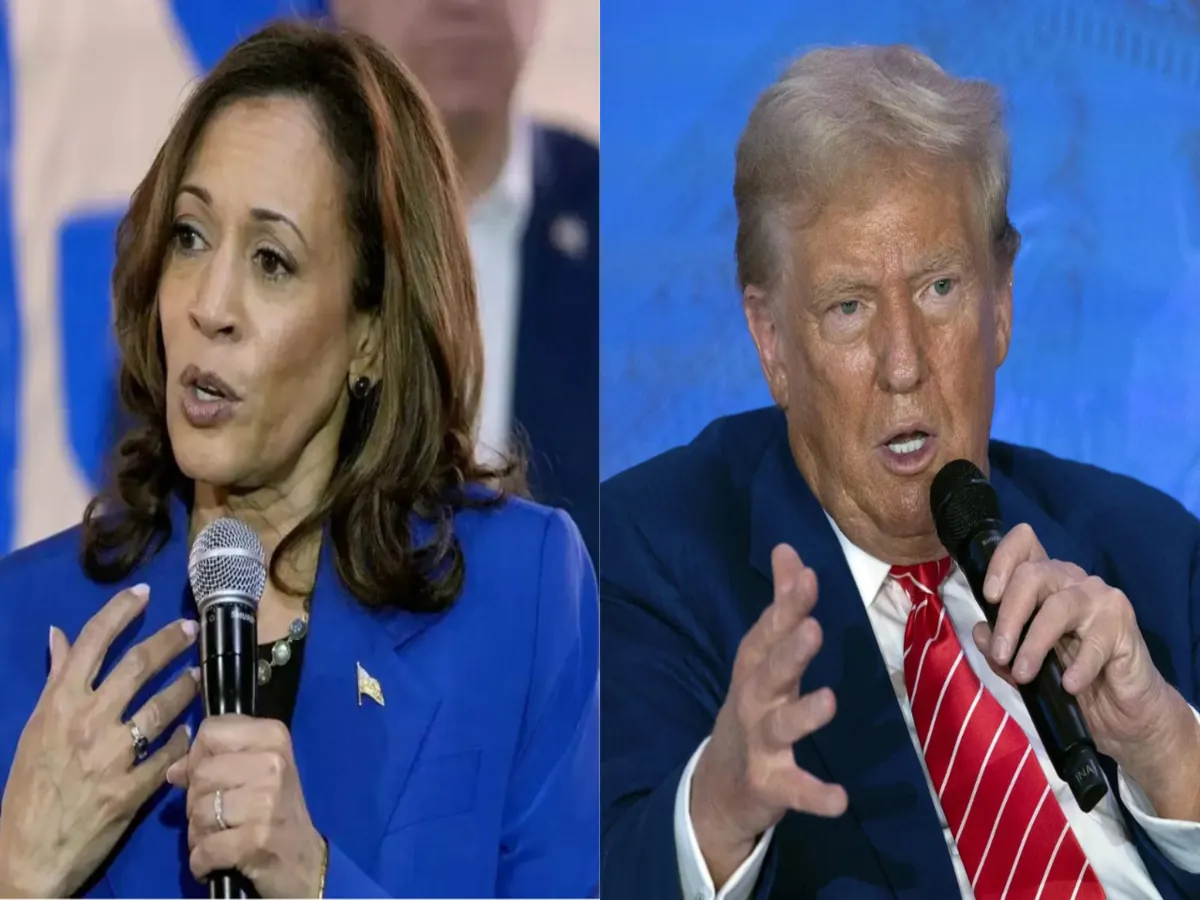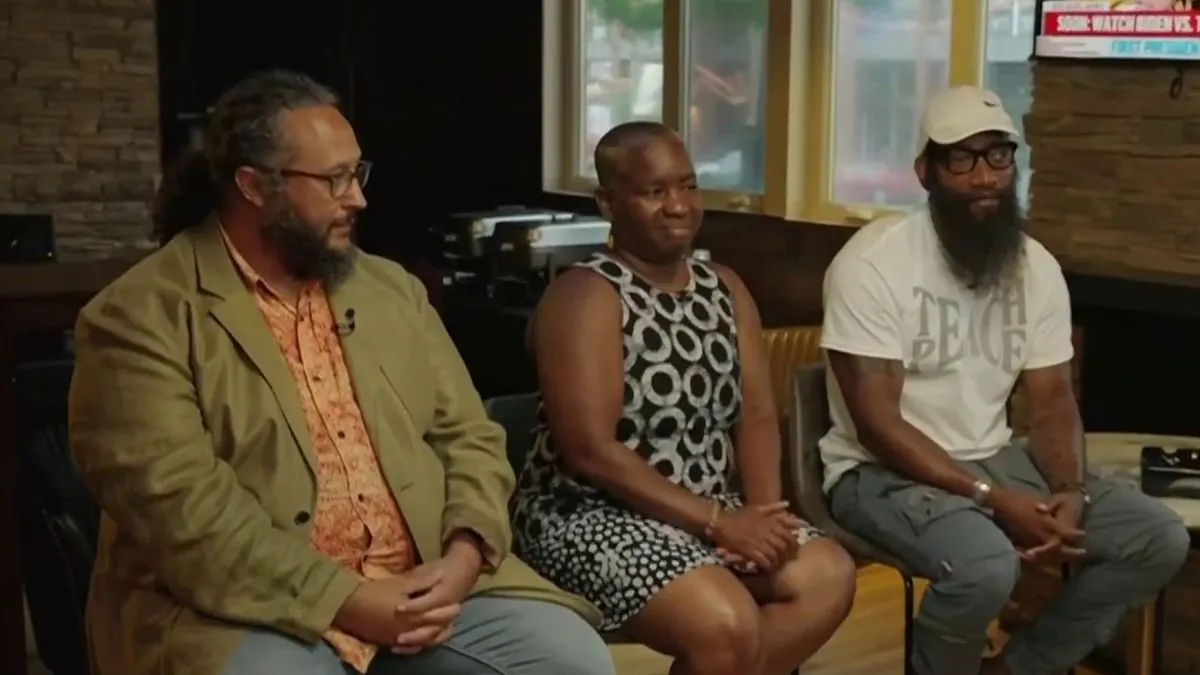Black Voters React to Harris-Trump Debate: Unity vs. Division
At a Pennsylvania watch party, Black voters responded to the presidential debate between Kamala Harris and Donald Trump, focusing on racial issues and reproductive rights. Harris's message of unity resonated with attendees.

In a significant political event, Kamala Harris and Donald Trump faced off in a presidential debate on September 10, 2024. The encounter, closely watched by voters across the nation, sparked particular interest among Black Americans, who gathered at various watch parties to assess the candidates' performances.
At a community event in Abington, Pennsylvania, nearly 200 people assembled outside the historic Salem Baptist Church to view the debate. The gathering, organized by local authorities and the church, aimed to foster civic engagement and provide a platform for voters to become more informed about their electoral choices.
A pivotal moment in the debate occurred when the discussion turned to Trump's previous comments regarding Harris's racial identity. The former president's remarks, made in July 2024, had questioned Harris's Black heritage, which she has consistently emphasized throughout her career. When pressed on this issue during the debate, Trump claimed indifference, stating, "I don't care what she is."
In response, Harris addressed the broader context of racial divisiveness in American politics. She referenced historical incidents involving Trump, including a 1970s racial bias case against his company and his promotion of false claims about Barack Obama's birthplace. Harris emphasized the importance of unity, stating, "We have so much more in common than what separates us."

The audience at the Abington watch party reacted positively to Harris's approach. Haywood Willis, a 59-year-old financial analyst, commended her professional handling of the situation and focus on unity. This sentiment was echoed by several other attendees, who appreciated Harris's emphasis on bringing the country together rather than engaging in divisive rhetoric.
Recent polling data indicates a growing commitment among Black voters to participate in the upcoming election. A Washington Post-Ipsos survey revealed that 82% of Black registered voters intend to support Harris, an increase from earlier figures for her predecessor, Joe Biden.
For many attendees, reproductive rights emerged as a crucial issue. Sydney Wilson-Roberts, a 29-year-old events manager, highlighted this as her primary motivation for voting. She expressed confidence in Harris's commitment to protecting women's reproductive rights, a topic that has gained significant importance since the Supreme Court's decision to overturn Roe v. Wade in 2022.
Racial equality and economic opportunities for Black Americans also featured prominently in viewers' concerns. Branford Jones, a 32-year-old business owner, criticized Trump's comments about "Black jobs" and expressed skepticism about the former president's policies benefiting the Black community.
As the debate concluded, attendees like Dannita Brooker, a 70-year-old pastor, praised Harris's performance, particularly her ability to challenge Trump's narrative effectively. However, Brooker also cautioned that the election outcome remains uncertain, especially in areas with strong support for Trump.
The Abington watch party, held at one of the oldest historically Black churches in Montgomery County, served not only as a venue for viewing the debate but also as a hub for voter registration and community engagement. This event underscored the critical role that informed and active civic participation plays in shaping the democratic process.
"Our hope is that people left debate night feeling more engaged and informed on their choices."
As the 2024 presidential election approaches, events like this debate watch party highlight the ongoing importance of racial issues, reproductive rights, and economic concerns in shaping voter preferences, particularly among Black Americans.


































